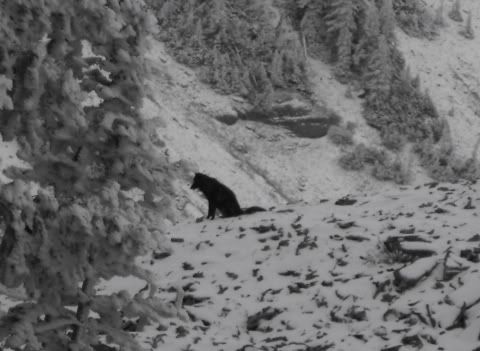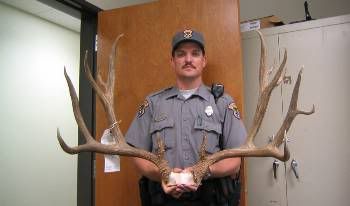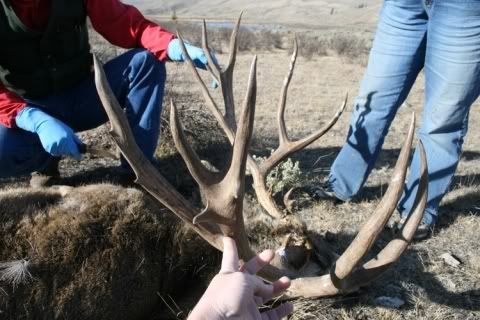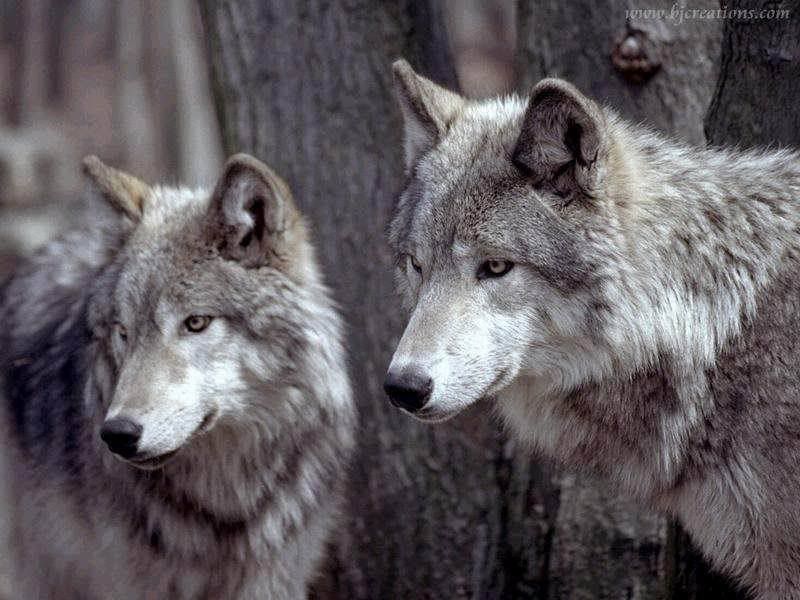The Legislature and Governor’s Office swept $7,560,695 from the Arizona Game & Fish Department (AGFD) to balance the 2008 budget deficit. The funding sweeps included $4,732,700 from the Watercraft License Fund, $395,000 from Off Highway Vehicle Recreation Fund and $2,827,600 from the Game and Fish Fund (La Osa Sheep Settlement money). In addition, another $5,600,000 ( $1,500,000 from the Off-highway Vehicle Recreation Fund and $4,100,000 from the State Lake Improvement Fund) were swept from the State Parks Department.
The Legislature is now struggling with an enormous budget deficit for 2009 estimated to be in the range of $2.2 to $2.5 Billion. Where will the money come from? That is the $64 question.
Arizona’s sportsmen feel strongly that “No Money be Swept from the Arizona Game & Fish Department”. Why should these funds be held harmless? First and foremost, AGFD monies are not general fund money. The primary source of AGFD funds is sportsmen’s dollars. Except for $10 Million annually from Heritage Fund (funding source for Heritage Fund is Lottery Revenues); $7-8 Million annually in Wildlife Conservation Funds (funding source is the Indian Gaming Initiative) and $300,000 from the Non-game Fund (Source is an income tax check-off) virtually all other AGFD money comes directly from sportsmen’s pocketbooks through license and permit fees, sure charges, and excise tax on hunting and fishing equipment and ammunition.
Aproximately 80% of AGFD’s revenue in any given year is generated by sportsmen. Sportsmen have time and again asked the legislature to increase the fees that they pay. The Joint Legislative Budget Committee estimated that the most recent fee increase in 2005 would yield a 30% increase in revenues to the AGFD by 2009. A similar amount was generated from the previous fee increase in 1999. And these fee increases were not easy to obtain as both increases required a super majority vote of the legislature.
Sportsmen know just how difficult it is to get the state to repay swept funds for Arizona’s wildlife. In 2006, AZSFW asked the Legislature to repay $15 million in funds that had been swept over the prior four years. Mind you this was a time when the state was flush with dollars and voted to increase their total budget expenditures by approximately 9%. After an aggressive campaign, AZSFW felt fortunate to obtain a general fund appropriation of $3.5 million for critical wildlife habitat projects.
It is time for the Legislature to stand tall and cut general fund programs and require that general fund agencies live within their means rather than stealing money from agencies that do not receive dedicated non-general fund revenue dollars.
Sportsmen are asking the Arizona Game & Fish Commission to support them in their effort to keep AGFD funds from being swept. While the Commission has been asked twice to pass a motion opposing all game & fish fund sweeps, they have yet to act on this important issue.
Sportsmen’s groups including Arizona Sportsmen for Wildlife, Wildlife Conservation Council, National Rifle Association-ILA, Arizona Wildlife Federation, Arizona Deer Association, Arizona Elk Society, Arizona Desert Bighorn Sheep Society, Arizona Antelope Foundation, Anglers United, Arizona Chapter Safari Club International, Arizona Flycasters Club, Arizona Bowhunter’s Association, Christian Bowhunter’s Association, Arizona Trappers Association, Yuma Valley Rod & Gun Club, Navajo County Sportsmen’s Club, Southeastern Arizona Sportsmen’s Club, Southern Arizona Sportsmen’s Alliance, Mohave Sportsmen’s Club, Arizona Predator Callers, Southern Arizona Wildlife Callers and Xtreme Predator Callers LLC have all signed onto the petition.
Arizona’s wildlife does not have a voice at the Legislature or the Governor’s Office. It is only through sportsmen that the case for wildlife can be voiced. With drought conditions and habitat reduction it is imperative that Sportsmen advocate for wildlife. The Arizona Game & Fish Commission should also advocate on behalf of wildlife by strongly opposing all sweeps of AGFD revenue. Failure to do so brings into question a legitimate concern that must be answered. Is the Arizona Game & Fish Commission fulfilling its fiduciary duty to protect and maintain Arizona’s wildlife and its habitat?
Not only must the Commission do its part, sportsmen must act today to save wildlife dollars from being swept. You can help by contacting your legislator and the Governor’s Office and asking them not to sweep any Arizona Game & Fish Department funds. Ask them to hold general fund agencies accountable and not allow them to steal wildlife dollars. Your help is needed today. To find out how you can help click here.
—————————————
Arizona Game and Fish Commission concerned that proposed legislation could impede wildlife management, bring lawsuits
PHOENIX — The Arizona Game and Fish Commission has expressed concern to House Concurrent Resolution 2037, a proposed amendment that would create a new constitutional right to hunt and fish in Arizona.
The Game and Fish Commission voted on Feb. 21 to oppose the bill as written, after a legal review by the Attorney General’s office advised that elevating hunting and fishing to a constitutional right could potentially hurt the state’s ability to enforce wildlife laws or take wildlife management actions, and could open the door to lawsuits from individuals who feel their rights to hunt and fish have been adversely affected.
“We understand the desire of the bill’s supporters to protect the ability of people to hunt and fish in Arizona into the future,” said Commission Chairman William McLean. “While the concept sounds appealing on the surface, the language of this bill as currently written could contain many pitfalls for wildlife management and law enforcement.”
The commission and the bill’s supporters worked extensively over the past week in an attempt to reach a compromise on the bill’s wording. But in a public commission meeting on Monday, the sides could not come to an agreement.
“Both sides made a diligent, good-faith effort to try to arrive at language that would satisfy the bill’s supporters and alleviate our concerns, but in the end, we couldn’t arrive at mutually acceptable language,” said McLean.
Under current Arizona law, hunting and fishing are considered privileges, not constitutional rights. Making them constitutional rights could subject Game and Fish laws and regulations to a more stringent legal standard and increase disputes over whether those laws and regulations overly restrict someone’s right to fish and hunt.
As an example, certain laws that regulate hunting and fishing, as well as the commission’s decisions to revoke a person’s hunting and fishing license privileges, would likely be subject to a strict scrutiny standard because they would interfere with a person’s constitutional right to hunt and fish.
Yet another example, the commission is likely to face more legal challenges to its decisions on matters such as issuing a certain number of big game tags, establishing bag limits, and closing or limiting access to certain areas to protect wildlife habitat or benefit protected species, because these actions might interfere with the constitutional right to hunt and fish.
“In addition to the high expense of defending the lawsuits, the State could potentially face large damage awards, injunctions blocking the enforcement of hunt orders, challenges to road or land closures protecting wildlife habitat, court decisions declaring state wildlife laws unconstitutional, reversal of criminal convictions and revocation orders on constitutional grounds, and above all, the diversion of vital agency resources to defend the litigation instead of managing wildlife,” said McLean.
The bill passed through the House Committee on Natural Resources and Public Safety yesterday by a 6-3 vote (and one committee member voting as present).
If ultimately approved by the Legislature, HCR 2037 would go to voters as a ballot referendum this fall.






